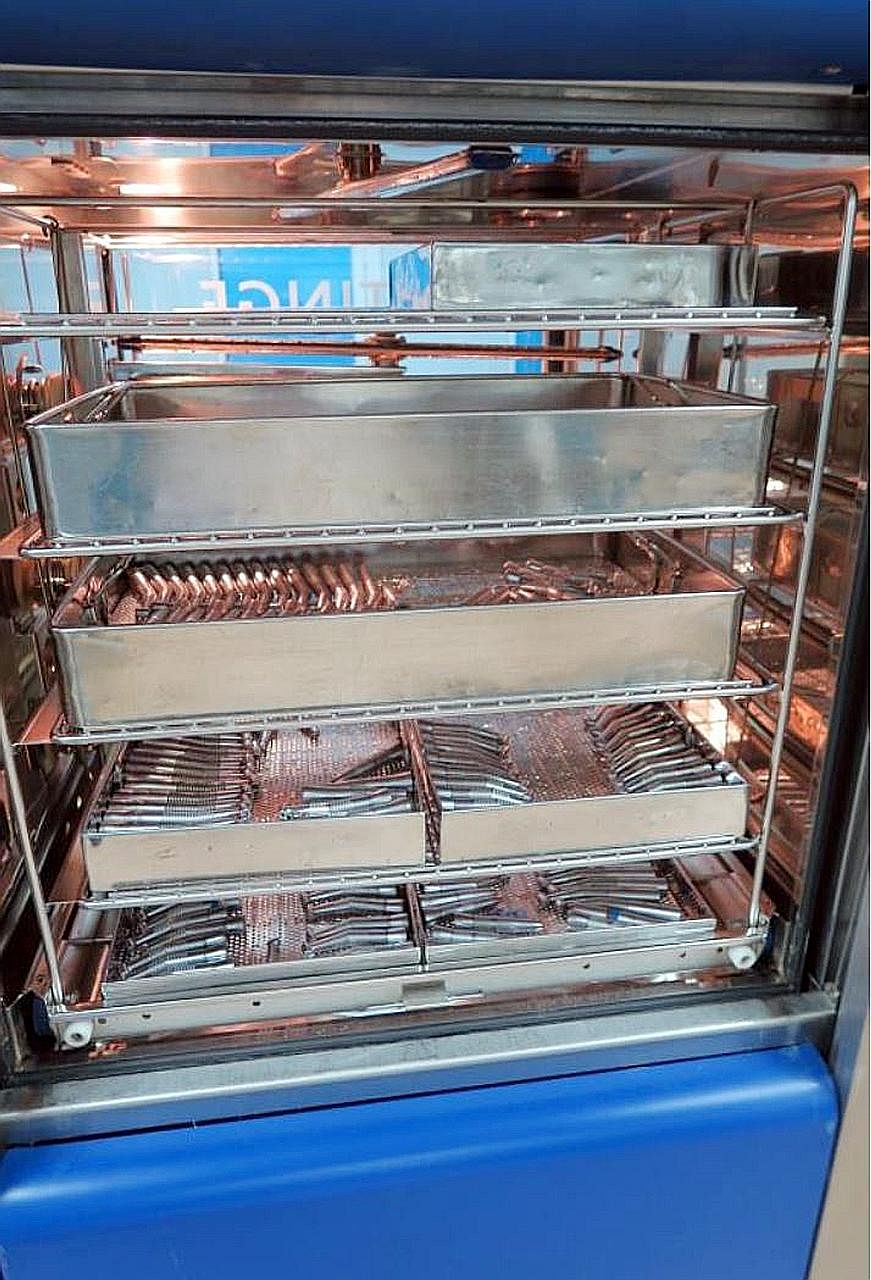The National Dental Centre Singapore (NDCS) is contacting 714 patients who were treated there last Monday and Tuesday after it discovered that 72 packs of instruments used had not been fully sterilised.
But in a statement yesterday, it reassured the patients that the risk of them getting infected as a result is "extremely low".
These packs were part of a batch that had gone through two of the three steps normally used to sterilise equipment that is to be reused, but not the final steam sterilisation to destroy bacterial spores.
The error was discovered last Monday because these packs lacked the markings to show they had gone through full sterilisation.
The centre tried to recall all the instruments in that batch. Although all were recovered, 72 packs had been used, some on Tuesday.
When asked why some were used the day after the discovery was made, the NDCS would say only that "efforts were made to trace and recall all affected dental instruments" and they were not all traced till the next day.
It does not know how many packs were used in its specialist clinics on levels 2, 4 and 6 of its building at the Outram campus last Tuesday.
The NDCS said they had undergone the first two steps - thorough machine washing and thermal disinfection to remove physical debris and "inactive organisms, including viruses" - which would remove "close to 100 per cent of organisms of concern".

It said the final sterilisation would remove bacterial spores, particularly Clostridium perfringens which affects the gut, with illness usually lasting a week, and Clostridium tetani which causes tetanus, very rare here.
The NDCS is informing the patients who were in the affected clinics on those two days about the slip-up, and reassuring them of their low risk of infection.
Its director, Dr Poon Choy Yoke, said: "Patient safety and well-being are our first priority. We deeply regret this incident and sincerely apologise to our patients for the lapse and any anxiety caused.
"We have taken immediate steps to strengthen our processes and ensure the safety of all patients in our care."
The Ministry of Health (MOH) was informed last Friday.
A spokesman said: "MOH has directed SingHealth and NDCS to conduct a thorough review of the incident and the processes involved, and to report its findings and follow-up actions to MOH.
"MOH will review the report and determine if any regulatory actions are to be taken against NDCS."
She added: "Our priority is the safety and well-being of patients."
Such problems have occurred in other countries. Last year in the United States, a Veterans Affairs dentist did not sterilise his equipment properly. About 600 patients he treated were contacted, warned of possible infection and offered free screening for HIV and hepatitis, and free care should they have caught the diseases.

